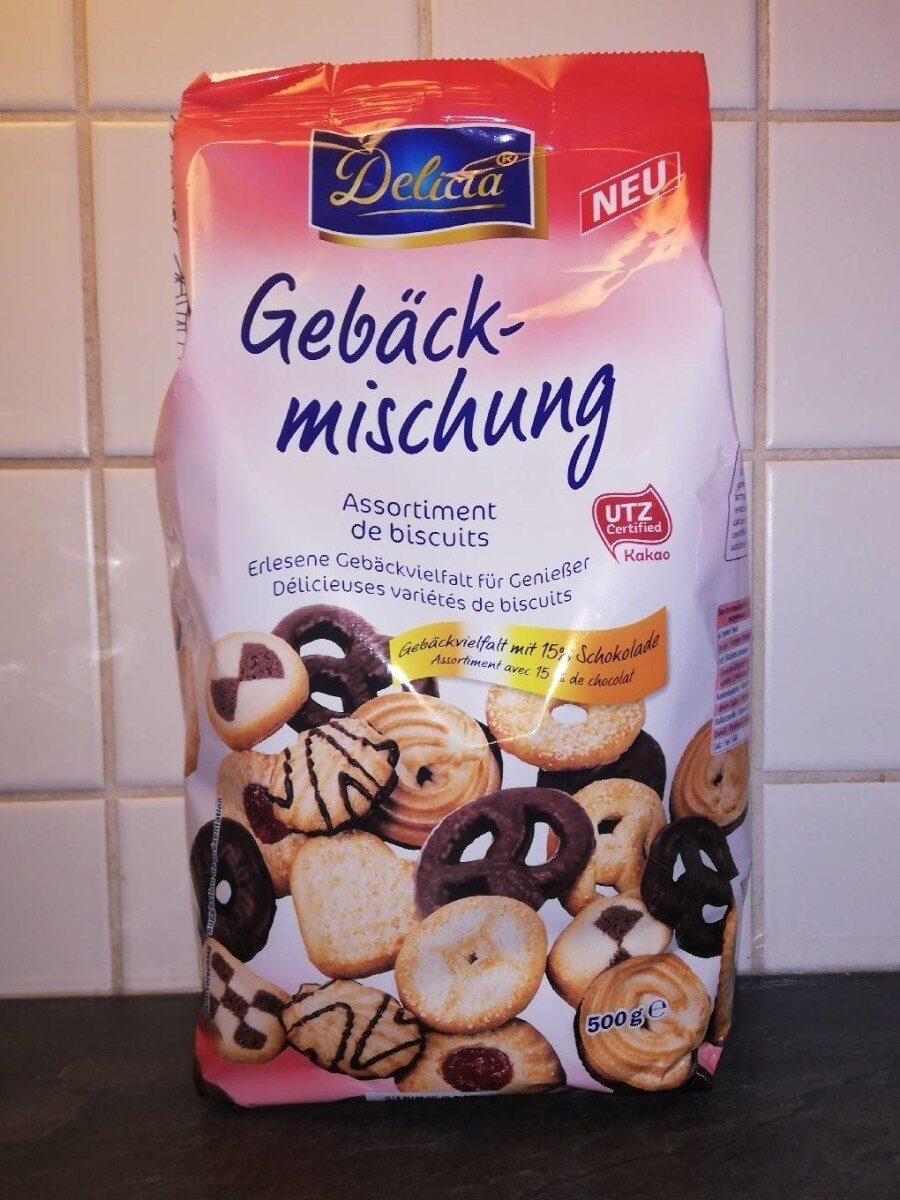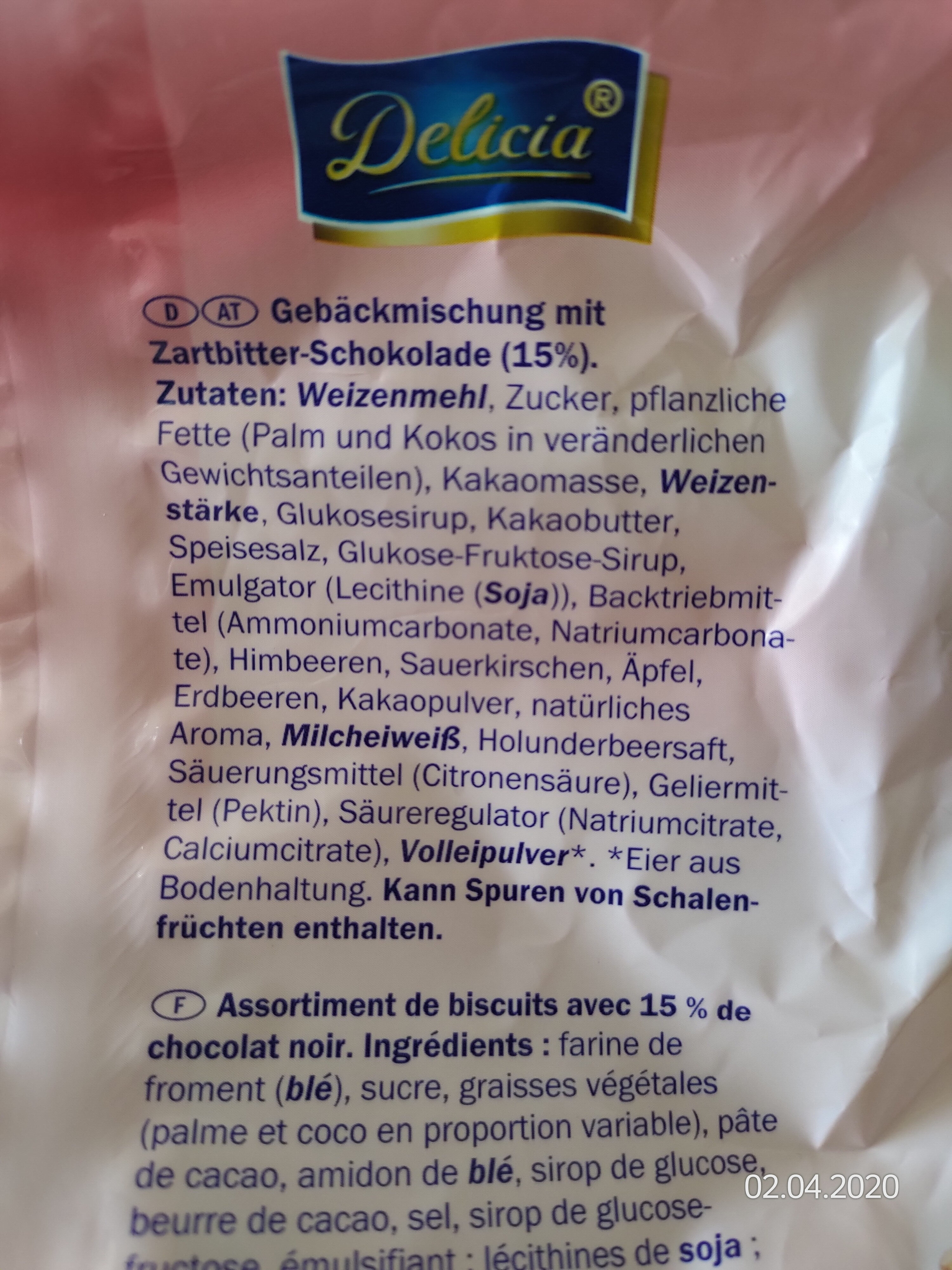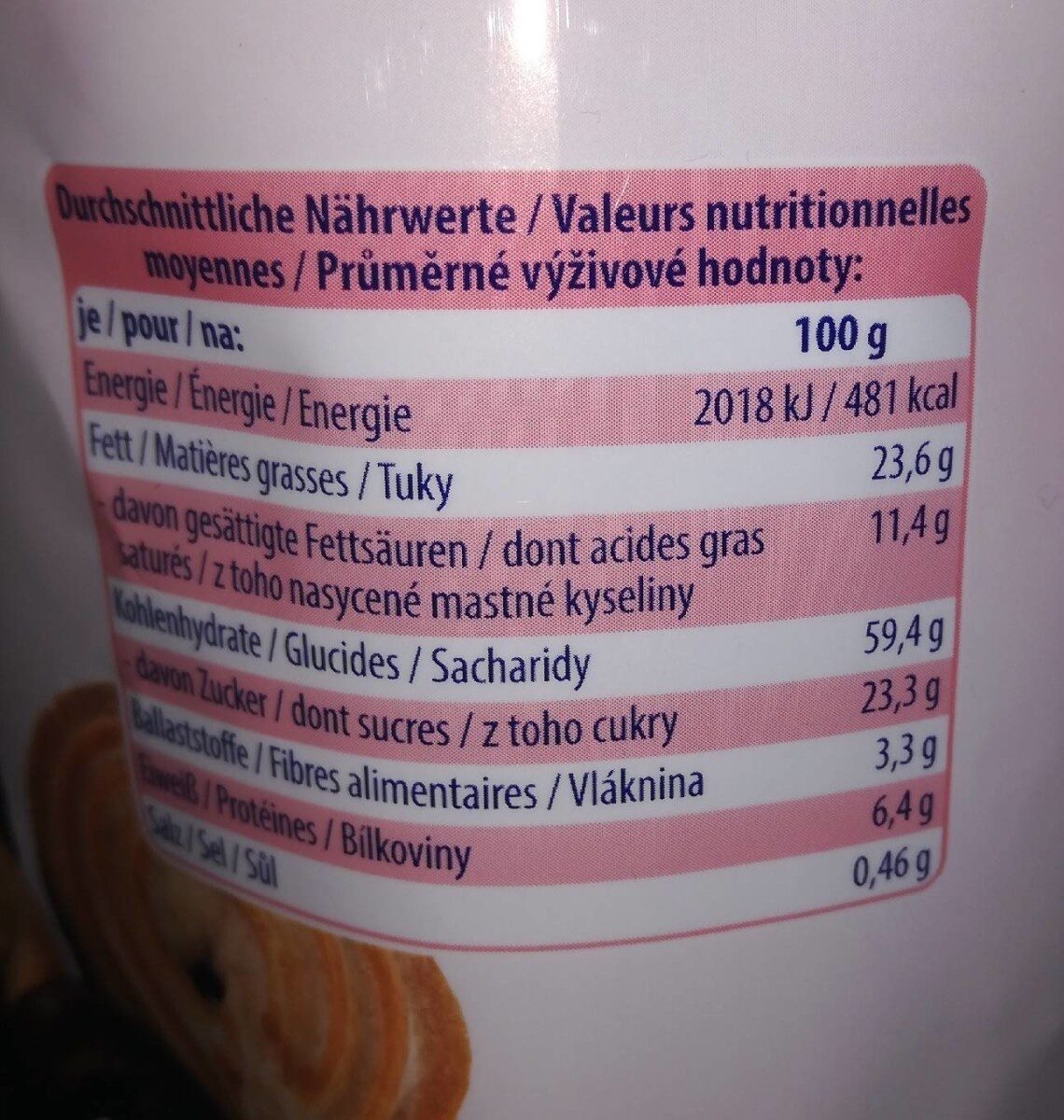Gebäckmischung - Delicia - 500g
Ambiguous barcode: This product has a Restricted Circulation Number barcode for products within a company. This means that different producers and stores can use the same barcode for different products.
×
This product page is not complete. You can help to complete it by editing it and adding more data from the photos we have, or by taking more photos using the app for Android or iPhone/iPad. Thank you!
×
Barcode: 20253691
Quantity: 500g
Packaging: de:Kunststoffbeutel
Brands: Delicia, Norma Handelsmarke, Norma
Categories: Snacks, Sweet snacks, Biscuits and cakes, Pastries
Labels, certifications, awards:
Sustainable farming, UTZ Certified, UTZ Certified Cocoa
Manufacturing or processing places: D-27263 Verden
Stores: Norma
Countries where sold: Germany
Matching with your preferences
Environment
Packaging
Transportation
Threatened species
Labels
Report a problem
Data sources
Product added on by openfoodfacts-contributors
Last edit of product page on by itsjustruby.
Product page also edited by kiliweb, roboto-app, teolemon, yuka.sY2b0xO6T85zoF3NwEKvlmxqfcOEpCPGDRbQwkuJ4PKoJ77RQ8t77pGnFas.











